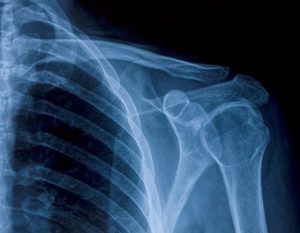
June 18, 2019, by Liz Goodwin
University News Review — April and May 2019
The University’s Press Office saw many top stories hit the headlines in early summer…
Our Dementia Choir with Vicky McClure
In this moving BBC1 two-part documentary, Bafta-winning actor Vicky McClure takes a deeply personal journey to discover the true extent of music’s power in the fight against dementia.
Vicky begins with a search for choir members, meeting people with different types of dementia and at different stages. She then sets out to see the impact of music on people in the later stages of dementia.
The three-month scientific study — which joined forces with the University of Nottingham and some of the UK’s leading dementia scientists — to see whether singing in the choir has any measurable physiological effect on them, culminates with a performance at the Royal Concert Hall in Nottingham in front of an audience of 2,000 people.
When programme director Peter Coventry brought his idea for the programme featuring local actress Vicky to Nottingham, he sought advice from Justine Schneider, Professor of Mental Health and Social Care, who introduced him to the University’s superb facilities for music making at Nottingham Lakeside Arts, with the help of Media Relations Manager for Arts, Charlotte Anscombe.
During the course of filming Vicky also paid a visit to our world-renowned Sir Peter Mansfield Imaging Centre where researchers showcased some techniques to look at how dementia affects the brain and how it responds to music.
 Statins are not effective at lowering cholesterol levels for half of patients
Statins are not effective at lowering cholesterol levels for half of patients
University experts in Primary Care have warned that a more tailored approach is needed to the prescribing of statins, following a new study suggesting they are ineffective at lowering cholesterol to target levels in more than half of patients.
Media Relations Manager for Medicine and Health Sciences Emma Thorne, promoted the research which found that 51.2 per cent of patients who were prescribed statins saw little benefit to their cholesterol levels within two years, leading to a significant risk of developing cardiovascular disease in the future.
The Guardian, Telegraph, Daily Mail and BBC News Online all reported on the story, and academics Dr Stephen Weng, Professor Nadeem Qureshi, and Dr Ralph Akyea gave interviews to Sky News, BBC News Breakfast and BBC1 East Midlands Today, to discuss the research.
All three academics in the Division of Primary Care emphasised: “If you have been prescribed statins you should continue to take them regularly, as prescribed.”
 Will the Netflix era herald the end of Hollywood?
Will the Netflix era herald the end of Hollywood?
Dr Gianluca Sergi is an expert in film and his enthusiasm for the subject is contagious. Working with Media Relations Manager for Social Sciences Charlotte Anscombe, his research into the future of the film industry and the soaring cost of cinema admissions, led to a recent feature in Vanity Fair New York along with a piece published in The Conversation and Metro UK.
Against increasingly tougher odds — in this era of streaming, online sharing platforms and on-demand, on-the-go access to virtually any film — Professor Sergi reveals that cinema-going still remains the most popular form of cultural participation and public social engagement. But behind this success story, he warns that if the trend of rising ticket prices continues, then it will effectively exclude many of those for whom cinema was intended in the first place, resulting in its complete gentrification.
“So ensuring access to the cinema experience for everyone should be part of the political and social conversation — not just an issue of preference. Streaming is not the enemy in this picture, but allowing significant cross-sections of the cinema-going population to be cut off from the most popular form of cultural engagement, most definitely is.”
 Screening for life-threatening bacterial infection of babies
Screening for life-threatening bacterial infection of babies
Group B Strep is the most common cause of life-threatening infection in newborn babies. The bacteria passed from mother to baby can cause pneumonia, meningitis and sepsis, and in the UK, about one baby a week dies from it.
Now a team at the University is carrying out one of the biggest ever investigations into the effectiveness of routine screening. The results could determine whether the idea eventually becomes part of the care of all pregnant women.
Media Relations Manager for Medicine and Health Sciences, Emma Rayner, worked with lead researchers Dr Kate Walker, Clinical Assistant Professor of Obstetrics, and Professor Jane Daniels, Professor of Clinical Trials in the School of Medicine, to highlight the landmark clinical trial.
BBC News Online, BBC East Midlands Today and BBC Radio Nottingham spoke to both academics about the research.
“We want to answer the question for the NHS — should you test pregnant women for Group B Strep or not, and if you’re going to test, is it better to do a culture test at 35 to 37 weeks pregnancy or a bedside test?” said Professor Daniels.
 Scientist solve the mystery of an ancient bone disease
Scientist solve the mystery of an ancient bone disease
An unusually aggressive, ancient form of Paget’s disease has been discovered in skeletons from a medieval priory in Cheshire. Paget’s is a disease of the bone which causes new bone material to be grown faster and weaker than it normally would, leading to complications.
The study co-ordinated by researchers at the University, involved analysing proteins and genetic material preserved in the bones and teeth, which was more than 800 years old.
The Daily Mail reported on the research which suggested that ancient remains can hold a chemical memory of disease and that similar molecular analysis could be used to explore the evolution of other human disorders.
Emma Rayner, Media Relations Manager for Medicine and Health Sciences, arranged for biochemist and lead researcher Professor Robert Layfield to speak to BBC London News, and BBC1 East Midlands Today. He explained:
“I think we’ve got a real opportunity now to try and drill down and find out what it was about this site here in Norton Priory that led to such unusual forms of Paget’s disease. If we can pinpoint those, then I think that will direct future research in the whole field of Paget’s disease for the next few years.”
 Farming Today investigates the hidden half of plants
Farming Today investigates the hidden half of plants
For thousands of years humans have poured time and effort into improving plants, making them grow faster, produce more, be resistant to disease, and trying to breed more crops which tolerate drought.
Ben Jackson of BBC Radio 4’s Farming Today visits Professor Malcolm Bennett at the Hounsfield Facility, where he is investigating root systems.
He explains that people have dedicated thousands of years to the care of plants above the surface but there is not so much research into the root structure of plants. The laboratory at the University’s Hounsfield Facility has a CT scanner — a new type of scanning device of which there are four in the world — and this one is looking at how roots grow.
Professor Bennett explains: “We can non-invasively image and look at over time how the root becomes more elaborate. The shape of the root system determines how efficiently they can capture the nutrients in the soil.”
 And finally… scientists discover the world’s tallest tropical tree
And finally… scientists discover the world’s tallest tropical tree
University scientists in the UK and Malaysia have discovered the world’s tallest tropical tree. Measuring over 100 metres high, the team found the tree, which is a Yellow Meranti (Shorea faguetinana), in the rainforests of Sabah, Malaysian Borneo.
The international outlets, National Geographic, and Smithsonian Magazine, along with BBC News Online, all reported on the discovery of the first 100-metre tropical tree, which is also the world’s tallest known flowering plant, recorded anywhere in the world.
The tree was first spotted by researchers from the University of Nottingham led by Dr Doreen Boyd in 2018, using an airborne Light Detection and Ranging Survey (LiDAR) where laser pulses are reflected off the canopy and ground surface.
Talking to Media Relations Manager for Social Sciences Charlotte Anscombe, Dr Boyd said: “By following up the discovery of the tree by my PhD student, Chris Chandler, in the airborne data, with a terrestrial laser scan and drone flight by colleagues at the University of Oxford, we were able to establish additional dimensional information about the tree, and to examine the mechanics of such giant trees in general.”
The team named the tree ‘Menara’ which is Malaysian for tower, and it’s estimated it weighs in around 180,000 pounds…. the equivalent of a Boeing 737-800.
It’s possible an even taller tree is still waiting to be found in the region.
The stats
April 2019
May 2019
No comments yet, fill out a comment to be the first




Leave a Reply